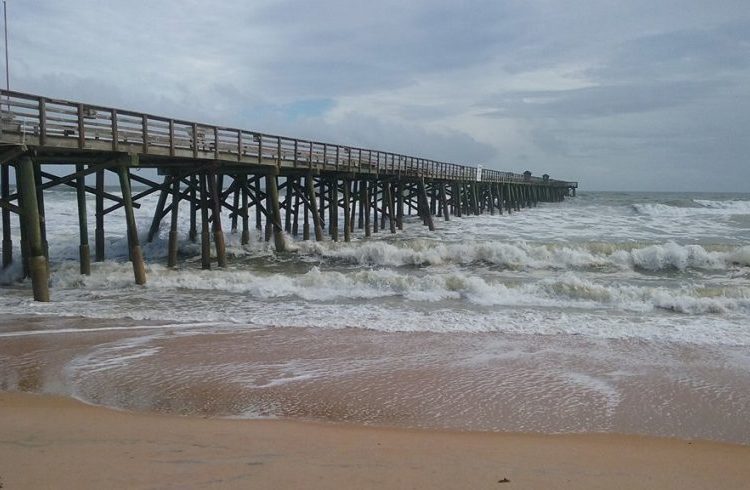Carlos René Aguilera thought he would escape Matthew’s onslaught. On a visit to the United States, this renowned visual artist attentively followed the passage of the powerful hurricane through Cuba’s eastern region and breathed with relief because of the scarce impact on his native Santiago de Cuba.
Now he is waiting for the meteorological event together with the family members with whom he is staying in Palm Coast, in Flagler County. He has even helped to secure the house and to buy the necessary supplies, in the mist of the madness that has taken over Florida as soon as the imminent threat was announced.
“Look at that, coming here and getting a cyclone,” Aguilera commented, “precisely when I was taking some time off with my family.” After previously spending some time in New York, his plan is to resume in short his work in Miami before returning to Cuba. “Let’s see what happens now, I expect Matthew will be benevolent with us.”
Like him, many Cubans residing or visiting Florida are already on hold prior to the arrival of the hurricane. “The people have already polished off the shops,” says Marcial Lorenzo Escudero, another inhabitant of Santiago residing in the United States. Marcial is waiting for Mateo, as the hurricane is called in good Spanish.
“There is no panic but there is precaution. Many people remember the destruction caused by Hurricane Andrew more than 20 years ago. Moreover,” he continues, “the supermarkets and the shops are making a fortune because the sales go up when the people’s fear increases. I had a hard time trying to get gas and even had to put up with a good line, but I’m ready for a day of retreat with the family in my apartment in Hialeah.”
Also cautious, José Ovi took his precautions early on and has followed attentively the measures adopted to minimize the possible damages of Matthew. A photographer linked to the world of television in Miami, this man from Santiago commented to OnCuba that “the entire area of Miami Beach was evacuated because it is predicted that the greatest damages will be in the zone closest to the beach.”
“There are places and shelters open since yesterday so that everyone has refuge and the authorities have recommended that the people move from the coasts. The same goes for those living in trailers and places offering little safety. The schools and airports are closed. All the parking lots are free of charge so the people can put away their cars and power cuts are being announced to avoid accidents.”
Despite this panorama and the warnings of the governor of Florida, who alerted about the possible destruction Matthew could leave in the wake of his passage through the state, there are many incredulous people regarding this and there isn’t a lack of family plans and usual “cubaneo.” Even José Ovi does not rule out the possibility of getting together with friends, having some beers and playing dominoes. “That way the cyclone can be more bearable,” he says.
According to the weather forecasts, Matthew should touch the southeast of Florida between tonight and the early morning of this Friday, although its proximity is already felt there. It has gained force with its passage through the Bahamas and its winds are again more than 200 kilometers per hour, which places it as a category 4 hurricane on the Saffir-Simpson scale.
In the face of the imminent arrival of the hurricane, in Florida more than 1.5 million persons living in the threatened zone have been ordered to evacuate. The authorities are afraid of the impact of an event that has already caused more than 130 deaths in Caribbean nations, the majority in Haiti. In Cuba, the economic damages are still being quantified; fortunately it has not had to deplore the loss of human lives.
“Evacuate, evacuate, evacuate. This is serious.” That’s how it was put by Governor Rick Scott, who urged citizens to not lose time or underestimate the force of the hurricane. Meanwhile, President Barack Obama announced a federal aid plan for Florida, which allows for rapidly unblocking assistance resources and that the domestic security (DHS) and management of emergency situation (FEMA) agencies coordinate the work of recovery.










